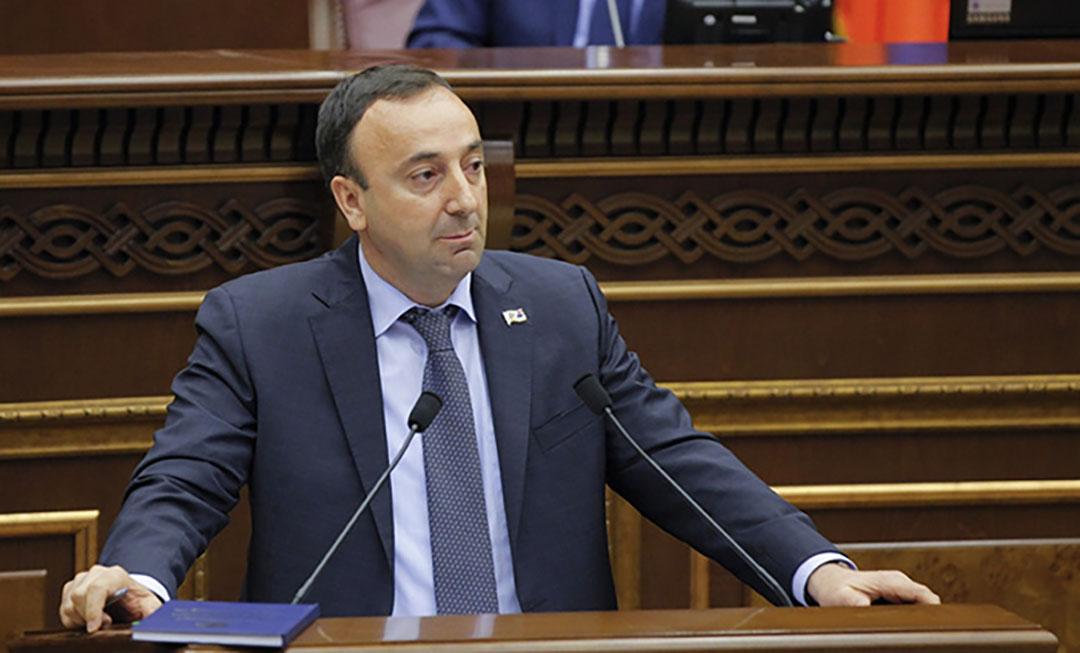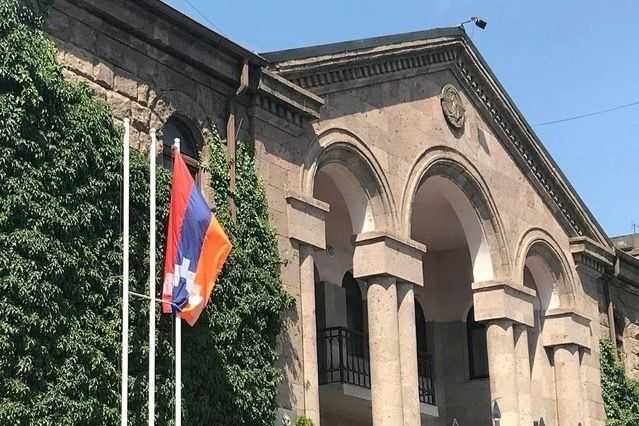

Armenia’s parliament, the National Assembly, has voted to revoke the powers of the President of the Constitutional Court, Hrayr Tovmasyan, on 4 October. Supporters of the vote claim that Tovmasyan is compromised due to his connections with Armenia’s pre-revolutionary government, while critics say that the government is meddling with the independence of the judiciary.
Tovmasyan, who has been in the position since February 2018, has been accused by members of the ruling My Step faction of having a conflict of interest in the trial of ex-President Robert Kocharyan, because of his history and personal ties with the formerly ruling Republican Party.
Tovmasyan and his supporters have claimed that the vote on 4 October was retaliation for the Constitutional Court’s 4 September ruling that Kocharyan’s arrest was ‘unlawful’, citing presidential immunity.
Kocharyan is on trial for his alleged role in a violent crackdown on protests on 1 March 2008, which left 10 dead.
[Read on OC Media: Competing protests and the death of a witness: month one of Armenia’s ‘trial of the century’]
Tovmasyan also served as Armenia’s Minister of Justice from 2010–2014 and was appointed to the court by Kocharyan’s successor, Serzh Sargsyan, who was deposed during the Velvet Revolution in April 2018.
The vote to revoke Tovmasyan’s powers was initiated by My Step. While guaranteed to pass due to the ruling bloc’s parliamentary majority, the vote also received the support of the opposition Bright Armenia party.
The opposition Prosperous Armenia bloc announced that they would abstain as they considered the vote to lack sufficient legal grounding.
The final say on Tovmasyan’s removal now rests with the Constitutional Court itself. The court can either strip him of his powers or reject the lawsuit brought forward by the National Assembly. Tovmasyan will be included in the hearing solely as a defendant.
100 pages
During the parliamentary discussions on 4 October, immediately preceding the vote the My Step faction presented an almost 100-page document which included several legal arguments as to why Tovmasyan should be stripped of his powers.
The document alleged that Tovmasyan violated proper protocol as a judge when, in early September, he ignored an appeal by newly appointed judge Vahe Grigoryan that would force him and two other judges to recuse themselves from the Kocharyan case due to a ‘conflict of interest’.
Grigoryan himself has acknowledged close ties to the Pashinyan government.
‘I won’t hide that I have friends in the “My Step bloc”’, he said during his confirmation hearing, adding that this would not bias his decisions on the constitutional court. ‘From the moment of being sworn in as a judge, a judge no longer has friends.’
Other criticisms levelled by My Step against Tovmasyan included his failure to disclose that he is the godfather of a member of Kocharyan’s legal team; his previous membership in the Republican Party; and that his stated views on the events of 1 March 2008 align with those of the Republican Party.
‘The mental state of a soldier’
In an interview with Armnews, Tovmasyan claimed that the aim of stripping him of his judicial powers was to stop the Constitutional Court from exercising its oversight role in ensuring that any political decisions made by Prime Minister Nikol Pahshinyan and the My Step bloc would be in line with the constitution.
He said that he would not leave his post willingly.
‘This position is a border entrusted to me. I have the same mental state a soldier has at the Armenia–Azerbaijan border’, he said. ‘Falling back, being pressured […] those are words tantamount to betrayal.’
Tensions have been high as of late concerning the Constitutional Court.
Co-founder of the Path of Law NGO and former Deputy Minister of Justice of Armenia Ruben Melikyan told OC Media that My Step was systematically removing checks and balances.
‘The ruling party, which already heads the executive and legislative branches of the state, is trying to take over the judiciary as well’, he said.
Ara Ghazaryan, a human rights consultant for the Council of Europe, told OC Media that Tovmasyan’s position within the court was a political issue the authorities were attempting to resolve through legal means.
The Constitutional Court has until the end of the year to make a decision. If the court decides to uphold Tovmasyan’s position as President of the court, he will serve for another six years, until his term ends.







